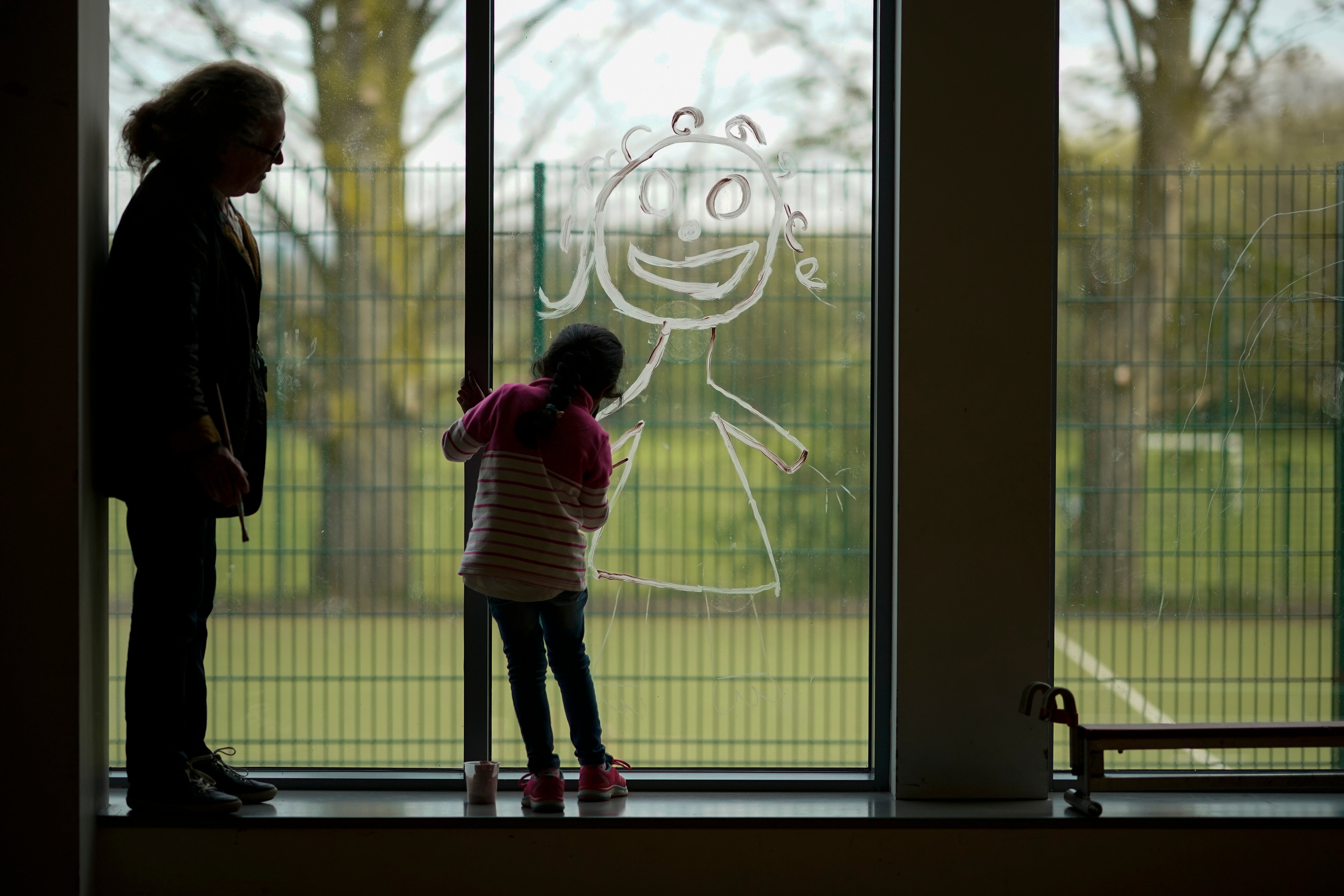Vulnerable children wait almost three years to access mental health care while others seen in just a week
Lengthy waits lead to ‘more and more’ children ‘ending up in crisis’, leading psychiatrist warns

Vulnerable children are waiting almost three years to access mental health care in some parts of the UK while others are seen in as little as a week, The Independent can reveal.
Psychiatrists described the disparity as a “scandalous postcode lottery” as they warned of the additional toll on young people’s mental health caused by Covid.
One child expert said the knock-on effect of the pandemic on already stretched mental health services had been “like throwing a bomb into the whole thing”.
With multiple lockdowns over the last two years keeping children away from school, their friends and hobbies, one in six children reported a mental health disorder in 2020 and 2021, up from one in nine in 2017.

The Independent requested information from 48 NHS mental health trusts about the time children were waiting for a first appointment with Child and Adolescent Mental Health Services (CAMHS) following a referral and the availability of beds for those with the greatest needs.
In one of the worst cases, it took 1,019 days for a young patient in South Yorkshire to be assessed.
In Staffordshire, children waited an average of just seven days, while in Bromley, southeast London, others faced an average wait of 112 days for an assessment.
Jo Hutchinson, a director at the Education Policy Institute think tank, said the unequal service offered was deeply worrying.
“That we continue to see disparities in access to children’s mental health services is a great concern, particularly given what we know about the impact of the pandemic on young people,” she told The Independent.
Dr Elaine Lockhart, chair of the faculty of child and adolescent psychiatry at the Royal College of Psychiatrists, added: “The postcode lottery in children and young people’s mental health services is scandalous.

“Lengthy waits for specialist treatment cause children’s and young people’s mental health to worsen, with more and more of them ending in crisis.”
The revelations come as one senior Conservative MP warned mask-wearing in schools could damage children’s mental health, after the government announced the measure would be reintroduced in classrooms next term.
Robert Halfon, chair of the Commons Education Committee, said he feared the risk new rules posed to children’s wellbeing may outweigh harms caused by Covid.
“The key question for me is... we say that, OK, shops, you have to wear them in shops, but you don't have to wear them in offices,” he added. “There is no requirement to wear masks in offices for adults. So why is there a requirement for children in schools, in classrooms, when children are at least risk from Covid? I don’t get it.”
Mr Halfon said the Department for Education should be assessing the impact of mask-wearing in schools. The government says mask-wearing will “maximise the number of children in school” amid the spread of the highly transmissible Omicron variant and that any measures were temporary.
According to the data gathered by The Independent, six trusts recorded a longest wait of more than a year to access an assessment with CAMHS, including 476 days at Norfolk and Suffolk NHS Foundation Trust and 405 days at Northamptonshire Healthcare NHS Foundation Trust.
In some of the worst examples, one young person waited 807 days at Bradford District Care NHS Foundation Trust for access to CAMHS, while at Avon and Wiltshire Mental Health Partnership NHS Trust, a patient waited for 642 days for a first appointment.
Average waits of more than 70 days were recorded last year in the south Gloucestershire team at Avon and Wiltshire Mental Health Partnership Trust, Oxford Health NHS Foundation Trust and Northamptonshire Healthcare NHS Foundation trust.
Most mental health trusts in northern England had average waits of less than a month – in line with proposed NHS targets – for a first appointment with CAMHS, which is usually an assessment before treatment. This included 15 days at Bradford District Care NHS Foundation Trust and 25 days at Cumbria, Northumberland, Tyne and Wear NHS Foundation Trust.
The shortest average wait time – just under seven days – occurred at North Staffordshire Combined Healthcare NHS Trust.
Covid and the pandemic came along and it has just been like throwing a bomb into the whole thing
Corin Batemen, 19, from Surrey, described how she was on a waiting list for NHS mental health support for four years, during which time she turned 18 and was moved onto adult services. She finally received six sessions of cognitive behaviour therapy (CBT) for anxiety last year.
“While I was waiting for help, I suffered immensely by myself. My anxiety got increasingly worse,” she said.
Her mental health also deteriorated during the Covid pandemic. She spent much of lockdown living alone, after her mother moved abroad for work, and faced the stress of completing school and her A-levels remotely.

“I felt very lonely and isolated,” she said.
Dr Karen Street, from the Royal College of Paediatrics and Child Health, said the pandemic had been disastrous for efforts to improve children’s services.
“We were all becoming aware Britain’s mental health services were under-resourced and overstretched, and that very often the children we were seeing in hospital services were on waiting lists or not having their needs met.”
“Then I think Covid and the pandemic came along and it has just been like throwing a bomb into the whole thing.”
She said “chronic staff shortages” needed to be tackled in order to bring down waiting times.
“It was enormously distressing to so many children and young people to be suddenly thrown out of control of their lives - and also for some children being thrown into home situations that were really challenging for them.
“We have just ended up with a massive fallout as a result.”
Figures from the Royal College of Psychiatrists showed more than 190,200 under 18-year-olds were referred to mental health services between April and June in 2021 – more than the double pre-pandemic levels for these months.
Dr Lockhart said there were “far more” referrals than could be managed and a “real upsurge” in the numbers of children and young people with eating disorders over the Covid pandemic.
The postcode lottery in children and young people’s mental health services is scandalous
NHS data shows more than 2,000 children and young people were still waiting for treatment for an eating disorder between July and September last year - up from 481 during the same period in 2019.
Board papers also showed children are spending time on acute or adult wards while waiting for inpatient CAMHS beds to become available.
Birmingham Women’s and Children’s NHS Foundation Trust said it was struggling to accommodate “high levels” of referrals to these tier 4 beds, turning away 90 patients per month towards the end of last year. This figure has shot up since the pandemic started, having been under 20 every month in 2019.
Sheffield Children’s Hospital said there were “significant waits” for CAMHS beds in late 2021, with patients stuck on acute wards in the meantime. East London NHS Foundation Trust said CAMHS bed pressures have led to a “higher number of children and young people” admitted onto adult wards – which is avoided “wherever possible”.

A South West Yorkshire Partnership NHS Foundation Trust spokesperson said it was unable to comment on individual cases. “As a Trust we have used extra funding in our neurodevelopmental CAMHS services to increase the number of assessments and reduce the waiting times,” they added.
A Bradford District Care NHS Foundation Trust spokesperson said the longest wait of 807 days was an “outlier”. “This case does relate to a period before our pathways were changed to make sure all referrals now routinely have a contact with the [neurodevelopmental] service within our average wait time of 15.9 days.”
A Northamptonshire Healthcare NHS Foundation Trust spokesperson said there was an increase in referrals in its core CAMHS service when comparing May 2020 and 2021. They said the trust was working to meet the increase in demand while ensuring high-quality and safe service delivery.
An NHS spokesperson said: “While this is just a snapshot of some services and doesn’t show the whole picture, the pandemic has inevitably had an impact on young people’s wellbeing and as a result, NHS mental health services are looking after more children and young people than ever before with over 420,000 treated in 2020-2021 – including record demand for eating disorder services.”
They said the NHS is investing nearly £120m extra funding in CAMHS last year, as well as putting mental health crisis lines in place and giving more support to schools.
Last year, NHS England proposed new standards which would mean children and young people with mental health problems should start receiving care within 28 days of being referred.
Join our commenting forum
Join thought-provoking conversations, follow other Independent readers and see their replies
Comments
Bookmark popover
Removed from bookmarks